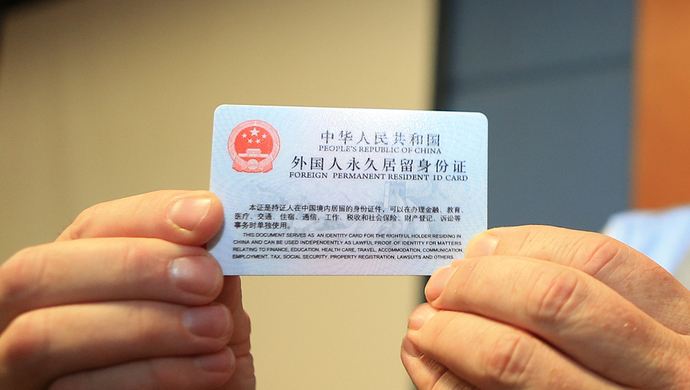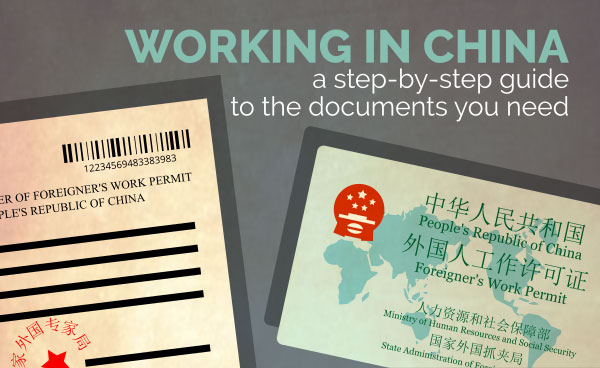

Almost all adventures come to an end. When it comes time to pack up your things and return to the job market of your home country, many soon-to-be-former expats need to get out their laptops, open up their resume file, and add a few more rows of experience detailing their time abroad. The question I would like to pose today is: How does this experience look on your resume? Are employers generally impressed by an applicant with work experience in another country? Or is it seen as a “gap” in one’s work history that could have been spent more productively?
As a former expat, I returned to my home country and wasn't sure which step to take next. While living in Hawaii, I knew that there was a considerably large population of non-native English speakers. I also knew that I wanted to continue teaching, but wasn’t exactly sure where. I ended up working at several private colleges in the Honolulu area, and eventually moved on to become a content writer and operations manager for Foreign HR.
Although my teaching experience is not necessarily within the public schools of the United States, the hiring managers that I have spoken with at my recent interviews were impressed by my experience in China. When I began to expound on my time abroad, they were inquisitive. They also noted that the experience I have in the classroom is greater than that of other teacher candidates who are just now entering the public school teaching profession. Because of this, I was recently selected for a high school teaching position at a charter school in Hemet, California.
The first person I reached out to for commentary on this topic was Pat Avello. Pat is originally from Duluth, MN, and is currently living in the USA. “International experience is always going to be valuable. As the world becomes more globalized, having linguistic skills is always a positive. Being abroad is a tremendous opportunity to learn a new language. On another level, it speaks to someones adaptability and flexibility. These are a few of the positives. The potential negatives are that teaching doesn’t always translate into the business world, but teaching abroad is a great way for someone to figure out which lily pad they are going to hop to next, professionally. Another potential negative is that, if someone doesn’t plan on becoming a career teacher, it could be seen as a delay in someone's progress toward their career goals. Overall, I feel like teaching abroad is definitely a net positive.”
In today’s job market, flexibility and adaptability are extremely important. With the constant shift in technology, to the globalization of business, we all need to be capable of adapting to constant change. Teaching abroad is a testament to one’s ability to deal with drastic change and persevere. We should, however, consider our career goals in everything we do. Do you want to be a teacher forever? If not, what is your time in China going to equip you with as an employable professional should you decide at some point that you want to return to your home country?

Kayla Raden, a former expat who recently returned to her home state of New Jersey, shared some of her experiences as an expat returning home. “[Teaching abroad] definitely helps me to feel more confident during interviews because it gives me something to talk about beyond just what’s on the resume. Since I am not a native speaker of Chinese and didn’t learn it until I was an adult, employers seem to be impressed by my willingness to take on a challenge and learn a new skill.” Kayla also shared that the development of her Mandarin proficiency has remarkably improved her critical thinking skills, as well as her professional network. “I don’t think I would have ever wanted to learn Chinese had I not worked and lived there and saw how much potential for both personal and professional growth there is when someone can speak to their friends and colleagues in their native language.”
Kayla also observed something quite similar to what I have noticed, that work experience in China can reflect positively on someone’s character and work ethic. Many employers, interviewers, and hiring managers rarely see this type of experience on someone’s resume, and when they do, they tend to appreciate the candidate’s anomalous professional background. It can be easily assumed that someone who has work and life experience in China is a person who is open minded, adventurous, and a self-starter.
I reached out to Chad Hutson, a former six year resident of Beijing who is currently living in California’s Bay Area. When talking about what China has done for his career as a whole, he highlighted his Mandarin language skills. “I’ve learned a new language. That has had a positive impact on my career path back home.” He went on to explain his current business ventures, “I have a lot of friends and students back in China. I actually started a teaching business and summer camp here in California. I invite students to come visit the USA for several weeks during the summer.”
This seems to be a common path taken by many former expats, myself included. If you take the time to make connections and network throughout the duration of your stay in China, it will not only provide you with career options if you return, it could also allow you to start your own entrepreneurial endeavors.
Another former and soon to be current expat from the United States, Anming Alexander, shed some light on both the negatives and positives of having work experience in China. “When I was teaching in China, I had a family emergency back home and I had to leave China earlier than I intended to. I had no car or money, and was in temporary housing situations. It took me two years to build my financial situation back to a point where I could leave the country again. Something which I found irritating is that employers don’t have appropriate spaces for a Chinese phone number or address. The online application forms ask for a city and state only, so when your experience doesn’t fit inside of their stupid box, it feels like it doesn’t count.” Anming continued by sharing a few of the positive aspects of having experience as a teacher abroad, “It does increase interest. When you say you have taught in another country, people are always interested to learn more about you. They may not know what to make of it, but if it is not in their personal experience, they will be curious about you. It can make you stand out from other candidates. Whether or not that leads to you being hired likely depends on other factors, but I do think that it increases your uniqueness as an applicant.”
As you can probably imagine, filling out job applications which require recent professional references may be tricky if all of your recent work experience is China-based. I would recommend sending a follow up email to the hiring team at the company or school you are applying to and explain that your recent work consists of time teaching abroad. Although your references may not be easily reachable via telephone, reference checks can possibly be conducted via email, Skype message, or Skype audio call. It would also be wise to contact your former supervisors in China and let them know that they will be contacted in regards to your reference check.

It’s what you make it
Teaching abroad is not just a tangent in your career path, it’s an opportunity to work on your qualifications, grow your professional network, and accumulate work experiences that are very attractive to potential employers. If you are currently in China, or considering taking a position in China, deeply consider working on your Mandarin proficiency. The former expats we’ve spoken with today unanimously agree that having Chinese language proficiency is one of the most marketable qualifications one can add to their repertoire. With China striving tirelessly to become a top player in the global marketplace, the demand for Chinese language skills will only continue to rise. It can also be observed that having work experience in another country often sets you apart from the rest of the candidate pool, and employers are generally intrigued by your unique work history. Take advantage of your time abroad. If you use your time wisely, develop yourself as a professional, and navigate your career path according to the goals and plans you have set for yourself, your time abroad will take you where you want to go!
(By Ted Salonek)










 京公网安备 11011202001511号
京公网安备 11011202001511号